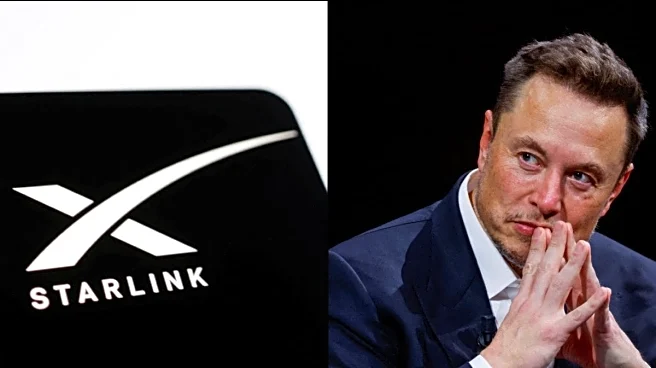A powerful bipartisan committee in the United States Congress has opened an investigation into Elon Musk’s Starlink satellite service amid allegations that it is being used to power online scam centres
operating in Myanmar’s conflict zones.
The inquiry, which began in July, follows an AFP investigation that revealed a sudden surge in Starlink dishes appearing atop scam compounds in Myanmar earlier this year, particularly in areas like Myawaddy, a hub for transnational cybercrime and human trafficking.
However, Starlink, owned by Musk’s SpaceX, has not responded to requests for comment. Lawmakers are seeking clarity on whether the company knowingly or negligently allowed its technology to be used by criminal groups.
Global fraud
The scam centres in Myanmar have been linked to billions of dollars in global fraud, including schemes that target Americans through fake investment platforms, phishing campaigns, and romance scams.
According to the U.S. Treasury Department’s Financial Crimes Enforcement Network (FinCEN), these criminal networks operate across Myanmar, Thailand, Cambodia, and Laos, often trafficking workers who are coerced into running online scams.
Satellite imagery and local reports indicate that after regional governments cracked down on terrestrial internet and electricity access, these scam operations turned to Starlink’s portable satellite terminals to stay online. The technology’s independence from local telecom networks has made it a preferred tool for fraudsters evading national restrictions.
Criminals using Starlink service to target Americans
In July, Democratic Senator Maggie Hassan wrote to Musk, urging him to take immediate action to block Starlink’s use by criminal organisations.
“SpaceX has a responsibility to block criminals from using the service to target Americans,” Hassan said in her letter, warning that transnational gangs are exploiting Starlink’s global reach to sustain fraudulent and exploitative networks.
Hassan highlighted that hundreds of thousands of victims, many trafficked into scam compounds, are forced to operate these schemes.
Meanwhile, authorities in Thailand have reportedly cut off electricity and internet supplies to several Myanmar border regions, including Myawaddy, in an attempt to cripple the scam centres. International pressure has intensified following several high-profile abduction cases linked to the compounds, including the rescue of Chinese actor Wang Xing earlier this year.
The US congressional probe now aims to find out whether SpaceX can stop its technology from being used for cybercrime and human trafficking in Southeast Asia.


/images/ppid_a911dc6a-image-177075852740281148.webp)



/images/ppid_a911dc6a-image-177075603605816191.webp)

/images/ppid_a911dc6a-image-17707550296985796.webp)



/images/ppid_a911dc6a-image-177075157301840277.webp)
